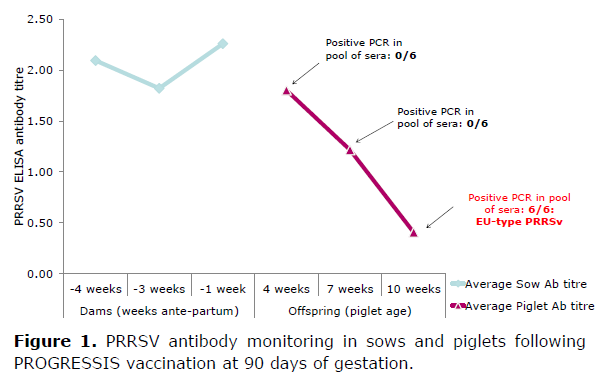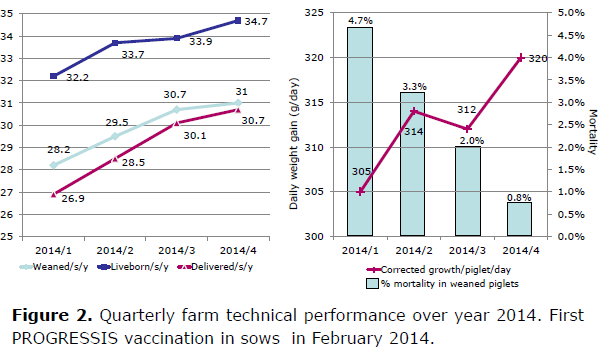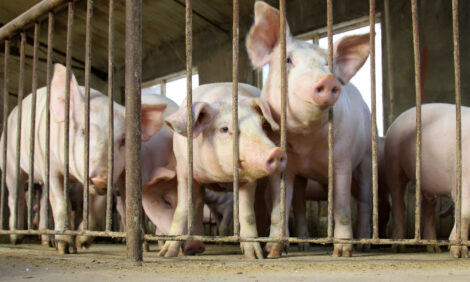



Effect of Dual Technology Prime Boost Vaccination in Sows on Circulation of PRRSV in Post-Weaning Piglets
PRRS is one of the most significant pig diseases in the modern swine industry. Current vaccination strategies are based on the use of Modified Live Vaccines (MLV) and/or Inactivated Vaccines. Nevertheless, in many farms PRRSV circulation in weaned piglets remains a clinical problem, write J. Spaans, A. Verhaegen, V. Dekens, H. Smits, T. Meyns and F. Joisel.The objective of this study was to evaluate the effect of implementation of a dual technology prime boost (DTPB) vaccination combining MLV and PROGRESSIS® at the end of gestation to increase the colostral immunity and to delay post-weaning PRRSV circulation.
Materials and Methods
On a Dutch farrow-to-finish farm of 1000 sows, piglets showed clinical problems linked to PRRSV between 4 and 10 weeks of age confirmed by PCR analysis on broncho-alveolar lavage fluid (BALF) from 4 weeks of age onwards. The vaccination program consisted of the use of an EU type MLV in sows at 60 days of gestation and at 6 days after farrowing. The piglets were not vaccinated against PRRS.
It was replaced by a vaccination with the MLV at 60 days of gestation and a booster with PROGRESSIS at 90 days of gestation.
During 1 year after the implementation of the new program, cross-sectional collections of BALF samples were performed in 4-to-10-week-old piglets and analyzed for PRRS RNA by PCR.
Blood samples of 6 sows were taken at 4, 3 and 1 week ante partum for IDEXX ELISA evaluation. For each sow, 3 piglets were randomly selected for blood sampling at 4, 7 and 10 weeks of age. Samples were tested by IDEXX ELISA and by PCR for viral RNA presence.
Clinical problems and technical farm data were monitored before and after the change in vaccination protocol.
Results
The analysis in weaned piglets showed PRRSV presence in BALF and in sera from 10 weeks of age after implementing the DTPB program only.
Sows showed an anti-PRRSV antibody titer decrease between 4 and 3 weeks ante partum and a strong increase after PROGRESSIS vaccination. A high correlation between antibody levels in sows 1 week ante partum and 4-week-old piglets was observed showing good colostrum management.
Antibodies in piglets steadily decreased from 4 to 10 weeks of age, indicative for the absence of field infection with PRRSV.
The clinical problems in the weaned piglets clearly decreased. Technical performance of the herd improved for several parameters: number of weaned piglets per year increased from 28.2 to 31.0, number of live born piglets increased from 32.2 to 34.7. Post weaning growth increased from 302 to 320 grams/day and mortality decreased from 4.7 to 0.8 %.
Conclusion
In this study, implementation of the PROGRESSIS vaccination at the end of gestation in the DTPB concept delayed the PRRSV circulation within the weaned piglets up to 10 weeks of age. Technical performance of the farm and clinical signs of PRRSV infection clearly improved.









